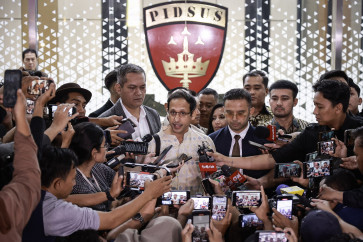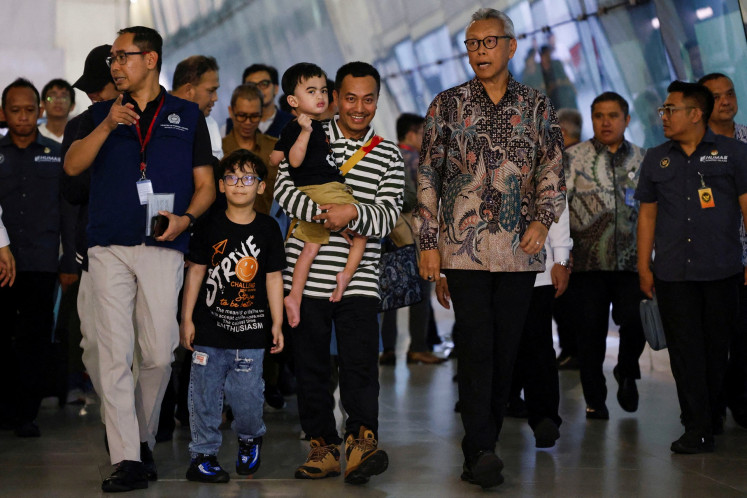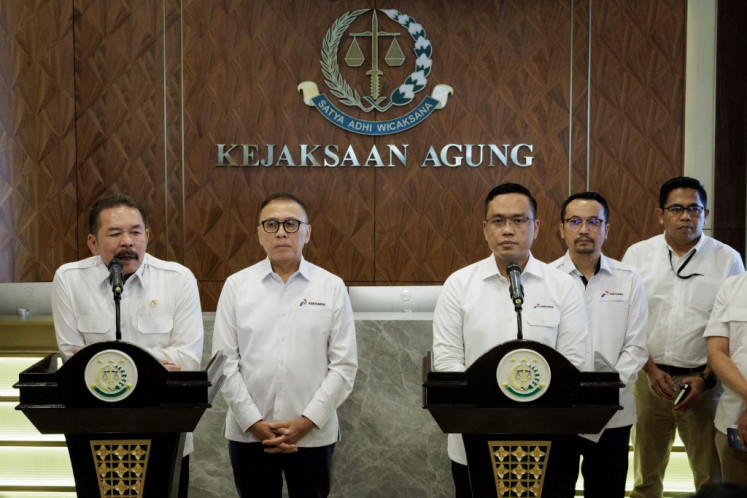Popular Reads
Top Results
Can't find what you're looking for?
View all search resultsPopular Reads
Top Results
Can't find what you're looking for?
View all search resultsInclusivity: Indonesian MSMEs strive to empower the disabled
Inclusivity has been a long-discussed issue, but its implementation remains on a minuscule scale. Many MSMEs try to enhance their social impact by making some strides toward inclusivity and they are making it their core business value.
Change text size
Gift Premium Articles
to Anyone
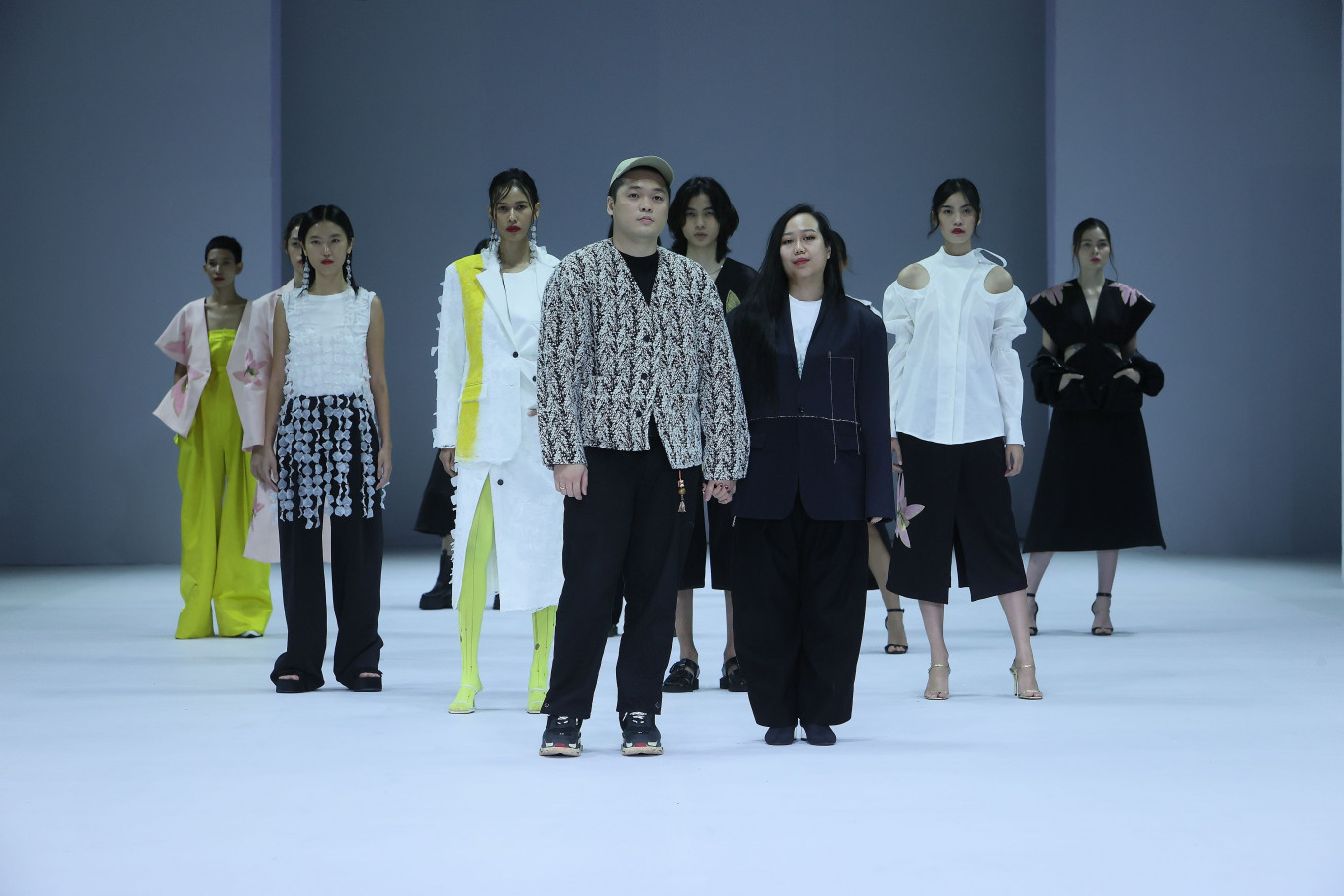

Inclusivity has been a long-discussed issue in business, but its implementation remains on a minuscule scale. Many micro, small and medium enterprises (MSMEs) try to enhance their social impact by making small steps toward inclusivity or by making it their core business value.
When Sera Yolanda started developing her laundry business in Bintaro, South Jakarta, she went straight to disabled communities for her recruitment.
“I was traumatized because I’d had bad experiences with house helps who were physically normal, but most of them had no intention of working. Maybe because they felt finding work was easy for them,” said Sera, who established Baby Laundry in 2019.
“I often saw people with disabilities around me discriminated against, in terms of social interaction and job opportunities, so when I started my business, I simply wanted to give them a chance,” said the 33-year-old. “I just want to give them more opportunities, even though I know I might not be able to give them a big salary because this is still a small business.”
For Sean Loh, one of the cofounders of premium fashion brand Sean Sheila, the opportunity to empower the disabled fell into his and his partner, Sheila Agatha’s, lap when they opened their brand’s workshop in Sheila’s hometown, Purbalingga, Central Java, in 2014.
The region is known for its wigs and eyelash industry, which absorb a huge amount of the local workforce. Deciding not to get stuck in the recruitment war, the couple turned to Sekolah Luar Biasa (SLB) state school Purbalingga for students with disabilities to find skilled workers, and the rest is history.

Full-on commitment
Unlike big companies, small businesses treat inclusivity as the core of their business instead of making it part of their corporate social responsibility (CSR) missions. However, entrepreneurship is not easy to begin with. When other elements such as social consciousness are added, this is where it gets even trickier.
Take Sera, for instance. With no experience in sign language, she focused her recruitment on quadriplegics at first.
“When I was preparing for the business, I tried to recruit by listing specifically for disabled [candidates] and sharing it to disabled communities on Instagram. Many people with disabilities applied, but the majority were deaf,” she said.
She changed her interview method to adjust to the incoming applicants. Sera would prepare a written application form, written questions and tests as well as organizing stationary for writing prior to the interview.
“Interviewing them wasn't as difficult as you might think, because you can still communicate. The only difference is that it's written down. They can also read our lips, as long as we speak slowly and the articulation is clear, so they understand what we are saying.”
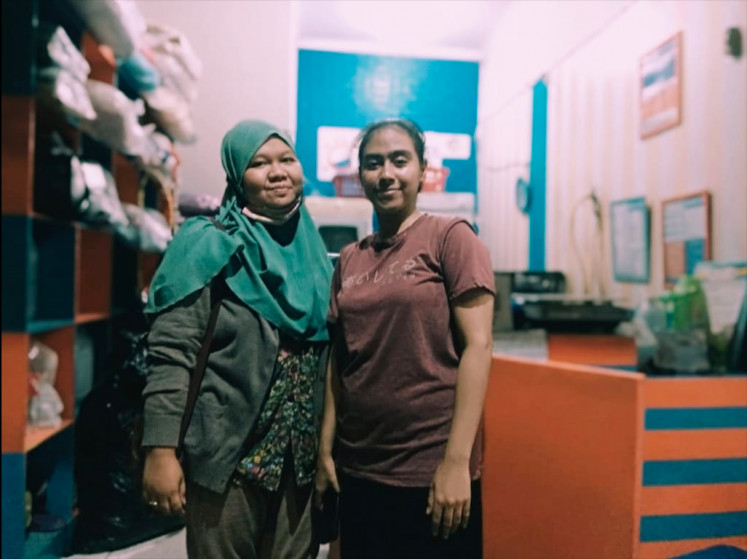
This method of written communication has also been used by the Sean Sheila brand. However, along the way, the couple also started to learn basic sign language to speed up the communication process.
“Our workers were trained to communicate in writing and they read lips well. So as long as we talk in the Indonesian language, they can understand,” said Sean, who is a Malaysian. “I think the school did a really great job in training them so they are prepared to communicate with the outside world. But I wish I could learn more sign language so we can communicate better.”
It is different for Putri Sampaghita Trisnawinny Santoso, founder of Kopi Tuli, who is a sign language user. According to Terry Eduard, Putri’s husband and advisor to Kopi Tuli, Putri and her two friends established Kopi Tuli after hundreds of fruitless job applications.
“Putri and Andhika [Mohamad Andhika Prakoso] are graduates in visual communication design from BINUS [Bina Nusantara] University. However, they couldn’t land a job,” said Terry.
The two met up to vent about their future, but instead they had a business idea. Andhika, who has been a coffee aficionado since junior high, first envisioned the caffeine source to be their core business idea. They then invited another friend, Tri Erwinsyah Putra, to help them start.
“They did 210 days of research and ended up with Kopi Tuli, championing a sociopreneur concept to empower teman tuli [deaf friends], our nickname for our deaf communities,” said Terry. “Putri is concerned that it remains hard for the deaf community to find jobs, so that was part of our social mission. Overall, we have developed our program around education, environment and humanity.”
Opportunity for both sides
Putri and Kopi Tuli are prime examples of how the disabled can take a stance and make opportunities for themselves. In addition to the first coffee shop in Beji, Depok, the business bloomed to the point that two additional branches opened, which have sadly closed due to the pandemic.
“We’re trying to pivot our business during the pandemic. Our dream is to hire as many disabled people as we can, so we can’t give up now,” said Terry. “As of now, Putri is developing the concept for a new business where we serve snacks, especially traditional ones.”
Sean Sheila, which has nine employees in total, has also started to ponder the future and how to make it sustainable for its workers. Its employees, all deaf and mute, are rotated periodically so everyone gets the chance to try all the roles in the production chain, from pattern making to embroidery.
“The [SLB] school is actually minutes away from our workshop and we did discuss how we could establish some sort of recruitment and internship program for their recent graduates, but we haven’t really established the partnership in black and white,” said Sean.
“We currently provide a dorm for our employees and we’re working on maintaining their welfare by providing them a decent salary, which is way above the regional minimum,” said Sean. “They are such hardworking and meticulous people. They don’t get distracted much so we have robust productivity. It’s good for the business, but maybe because we’re not a big factory with a complex chain of command.”
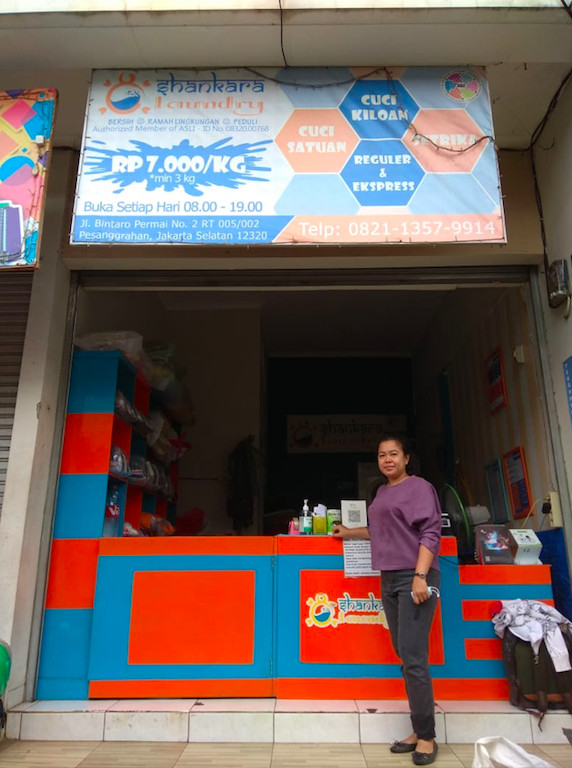
Likewise, with the support of her employees, Sera’s business also bloomed to the point that she could find a partner to expand her business and moved into a more premium area. However, to keep her disabled employees close to their homes, Sera decided to make a new brand that could stay in the old location.
“Thus, Shankara Laundry was born. Shankara means the bringer of luck or happiness in Sanskrit. It still runs with several values, which are that it is clean, environmentally friendly and caring for people with disabilities,” she said. “[The employees] are diligent, kind and caring. They also prioritize customers very much, which is why many customers are satisfied with them, so they often receive tips or gifts.”
However, along the way some of Sera’s employees got recruited by bigger companies, and Shankara Laundry is currently run by non-disabled employees due to limited recruitment.
“The saddest thing, actually from my heart, I want to make [my ex-employees] even more prosperous, but the ability of my business is still limited. But we still maintain good communication,” said Sera. “People with disabilities tend to be more honest, and loyal, and they work harder.”
“Many people were skeptical when I told them that I recruit people with disabilities. They told me it was going to be hard, especially with communication. But recruiting non-disabled people will still have its difficulties anyway,” she said.
“To recruit people with disabilities or to recruit those without — both options come with their own difficulties, only the difficulties faced are different.”
ohmg

